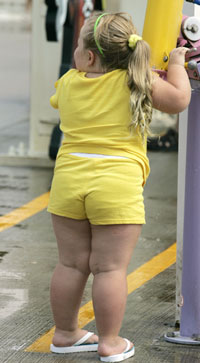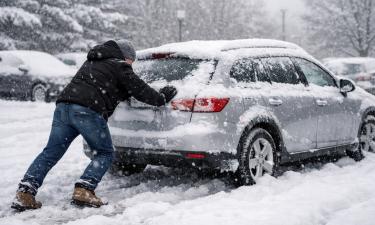Puerto Rico battles child obesity
The gym routine for 11-year-old Daniel Alvarado mixes music and games with jump ropes and stationary bikes. But like the other children sweating through workouts, he doesn't come just for fun. He is following doctor's orders.

The apple-cheeked boy, diagnosed last year with high cholesterol, is among a generation of Puerto Rican children struggling with obesity and related diseases, once rarely seen among young people. Studies show 26 percent of youngsters here are obese, worse than on the U.S. mainland where the figure is estimated to be 18 percent.
"If we don't do something now, this will be the first generation that will die before their parents," said Waldert Rivera-Saez, an assistant secretary of health in Puerto Rico, where doctors report such problems as high blood pressure, diabetes and heart disease among the young.
Puerto Rico has responded by encouraging islanders to pursue more active lifestyles with a US$8 million (euro6 million) program called "Puerto Rico in Shape," launched last year to hire physical trainers and nutritionists in each city and town.
Gov. Anibal Acevedo Vila, who led calisthenics inside a housing project in San Juan one recent weekend as part of the program, is preparing to declare childhood obesity an island-wide emergency in an executive order. That will allocate more money for prevention.
In Daniel's case, a local diet heavy on fried food and carbohydrate-rich staples has made finding healthy food a challenge.
"I don't eat chili with beans and cheese anymore, even though it's really good," said Daniel, who consults a nutritionist. "My mom cooks me meals without cholesterol or anything."
Many of the conditions blamed for obesity in U.S. children also affect Puerto Rico: families that work more and eat fewer meals at home, the popularity of video games and in some neighborhoods a fear of crime that keeps children indoors. And in Puerto Rico, a culture persists that celebrates pudginess as a sign of a healthy child.
A pediatrician in the San Juan area, Dr. Jose Luis Martinez, said 40 to 50 percent of the infants he treats at a public hospital are overfed.
"You see grandma telling mom, 'This boy is skinny, you have to give him more formula,"' Martinez said. "The older generations, the grandmothers, are the ones who have this idea everyone needs to be chubby."
Cultural family practices also appear to play a role, albeit a mysterious one, in the United States where Hispanic children are overweight at higher rates.
"One of the unknowns that I spend a lot of time thinking about is what is it in the Hispanic population that seems to be driving these problems?" said Bill Dietz, director of the division of nutrition and physical activity at the U.S. Centers for Disease Control and Prevention in Atlanta.
Genetics have been blamed for fueling the epidemic in Puerto Rico and other Latin American countries, where people's indigenous ancestors evolved to survive without a reliable food supply.
"Those genes plus an overabundance of food is a deadly combination," said Enrique Jacoby, regional adviser on nutrition and physical activity for the Pan American Health Organization.
Many countries are moving to reinstate physical education classes as obesity awareness increases across the region, Jacoby said. Chile, which ranks with Puerto Rico and Mexico among the region's highest childhood obesity rates, has eliminated many fatty foods from school cafeterias. In Brazil, Rio de Janeiro has banned soda from school vending machines.
Puerto Rico has found inspiration for its strategies from the U.S. and other countries, including its "Get Moving Puerto Rico" campaign, which is modeled on a Brazilian initiative to organize walking groups and other activity.
Jose Ortiz, owner of the private gym in the San Juan suburb of Guaynabo where Daniel exercises, said group workouts that began late last year aim to create an environment where overweight children who might face teasing elsewhere can build their confidence. The workouts include video games they play by stepping on a mat with sensors and pedaling stationary bikes.
"I usually don't want to come because I'm tired, but once I get here it's fun," said 10-year-old Miguel Fernandez.
Subscribe to Pravda.Ru Telegram channel, Facebook, RSS!




